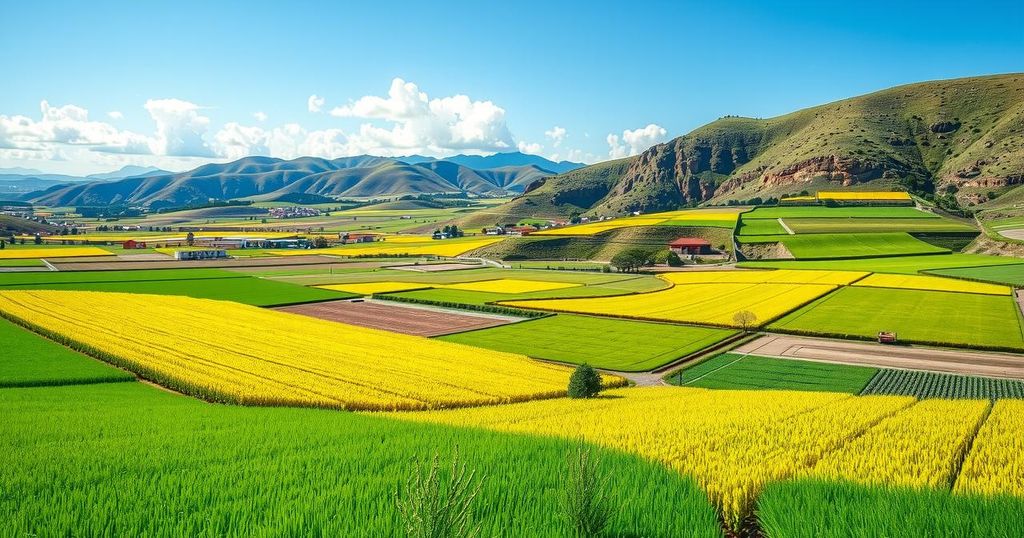The legal case involving Peruvian farmer Saul Lliuya in Germany may set a precedent for corporate liability in climate change damages. Judges visited a glacial lake in Peru to assess the potential responsibility of RWE, a major electricity provider, for the risk of catastrophic floods linked to climate change. This case complements the ongoing issues faced in Peruvian agriculture due to climate impacts.
Saul Lliuya, a farmer from Peru, is currently involved in a significant legal proceeding in a German court that seeks to clarify corporate accountability for climate change-related damages. The court is investigating the connection between anthropogenic global warming and the potential risk of a catastrophic flood in his native Peru.
Recently, German judges and court-appointed experts visited a glacial lake in the Cordillera Blanca mountain range, which is pertinent to the case. They aim to assess whether RWE, Germany’s largest electricity company, holds partial responsibility for the human-induced climate changes that might lead to devastating floods in Peru. This visit marks the concluding phase of a protracted legal battle that has lasted seven years.
The impacts of climate change are also manifesting in Peru’s agricultural sector, where severe droughts in the Andes have disrupted vital crop yields, particularly for potatoes and corn. These conditions have been linked to the El Niño phenomenon and broader climate change effects, highlighting the urgency of addressing climate-related issues.
The ongoing case of Saul Lliuya illustrates the increasing intersection of corporate accountability and climate change imperatives. As the German court deliberates on RWE’s potential liability, the outcome may set a significant precedent for future climate liability claims. Additionally, the adverse effects of climate change on Peruvian agriculture underscore the pressing need for effective climate action.
Original Source: america.cgtn.com






